What is a Toothache?
Toothache can be one of the worst pains you can ever witness. Rather, it is one of the most common and gruesome pains you can ever experience in your lifetime. Also known by name of odontalgia, it is an aching pain in or around a tooth, generally severe. It is any pain or soreness within or around a tooth or the jaw.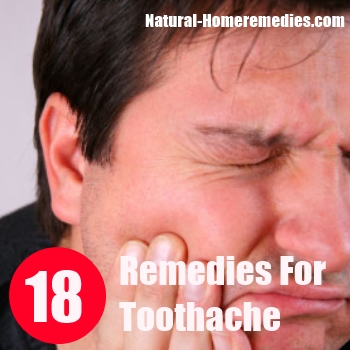 A toothache is not at all easy to endure. Even the healthiest and mightiest of humans have been seen crying because of a toothache. It is generally pulsating in nature and reaches throughout your jaw, ear, temporal lobes, eyes, sometimes even head. The pain would not let you concentrate on anything else, but itself. Even if one maintains good oral hygiene, he/she is always prone to this gruesome condition. At times, these pains are so annoying and horrifying, one feels like extracting the painful tooth out himself/herself. Painkillers do help, but only for a small time period. Generally, toothache is varied; its intensity depends upon its cause. Perhaps, the most common form is the minor pain resulting out of sensitive teeth. Its severity can range from mild discomfort to excruciating pain, which can be experienced either chronically or sporadically. Hot/cold drink, sweet food, and chewing can aggravate the pain to problematic level.
A toothache is not at all easy to endure. Even the healthiest and mightiest of humans have been seen crying because of a toothache. It is generally pulsating in nature and reaches throughout your jaw, ear, temporal lobes, eyes, sometimes even head. The pain would not let you concentrate on anything else, but itself. Even if one maintains good oral hygiene, he/she is always prone to this gruesome condition. At times, these pains are so annoying and horrifying, one feels like extracting the painful tooth out himself/herself. Painkillers do help, but only for a small time period. Generally, toothache is varied; its intensity depends upon its cause. Perhaps, the most common form is the minor pain resulting out of sensitive teeth. Its severity can range from mild discomfort to excruciating pain, which can be experienced either chronically or sporadically. Hot/cold drink, sweet food, and chewing can aggravate the pain to problematic level. Different Types and Causes of Toothache
Toothache can be related either to dental or non-dental etiology. Most of the times, it is the problem with the tooth or jaw that causes pain. Pain raising out of non-dental etiology can be due to trigeminal neuralgia, cytotoxic chemotherapy-induced neuropathy, atypical odontalgia, or referred pain of myocardial infarction.
Other causes of toothache relating to dental etiology are as under:Dental caries
These are soft decayed areas in a tooth that can eventually lead to death of a tooth, if not attended to.
Pulpitis
It is the inflammation of the dental pulp that results in sharp pain. It can be either reversible or irreversible. Teeth affected by irreversible pulpitis will need either root canal treatment or extraction.
Barodontalgia
It is a pain evoked upon changes in barometric pressure in otherwise asymptomatic but diseased teeth.
Periodontitis
It is a disease that attacks the gum and bone and around the teeth, resulting in severe toothache.
Wisdom teeth
These are the last of the permanent teeth to erupt and the process is generally very painful.
Dry socket
It is a condition arising after having one or more teeth extracted.
Poor oral hygiene
Poor oral hygiene can also result in toothaches.
However, the aforementioned factors result in toothache, the most common cause of toothache is dental cavities. Bacteria in the mouth can form plaques that stick to teeth and form acids that eat through tooth enamel, causing a cavity. This toothache pain is usually worse when you eat cold or hot food. Other common causes of toothache are gum disease, tooth abscess, irritated tooth root, and a condition called temporomandibular joint, which affects the jaw.
Home Remedies for Toothache
Some of the home remedies to get relief from toothache are as under:
Clove oil
 Applying clove oil to the affected area can help relive the pain to a substantial degree. Clove oil possesses numbing properties that numbs the nerve endings temporarily. The effectiveness of cloves can be attributed to a compound called eugenol, which is present in cloves. Eugenol is a powerful anesthetic that also possesses antiseptic properties. Small amount of clove oil soaked in a small cotton swab can be kept on the affected tooth to get relief from the pain. Clove oil can be had from any local pharmacy. Make sure to use it as instructed as too much ingestion could cause adverse effects. Also, make sure to put the oil-soaked swab on the affected tooth, and not the gum area.
Applying clove oil to the affected area can help relive the pain to a substantial degree. Clove oil possesses numbing properties that numbs the nerve endings temporarily. The effectiveness of cloves can be attributed to a compound called eugenol, which is present in cloves. Eugenol is a powerful anesthetic that also possesses antiseptic properties. Small amount of clove oil soaked in a small cotton swab can be kept on the affected tooth to get relief from the pain. Clove oil can be had from any local pharmacy. Make sure to use it as instructed as too much ingestion could cause adverse effects. Also, make sure to put the oil-soaked swab on the affected tooth, and not the gum area.
Cold compresses
Cold compresses can help a great deal with gruesome and troubling toothache. Applying cold compresses on and around the painful tooth causes insensitivity in the area, thereby providing relief from the pain. However, the relief is temporary, but pretty quick. This particular method is also beneficial in bringing down toothache-induced swelling. The compression causes the area to cool down and reduce swelling. Do not apply ice directly on the area. Instead, but some ice cubes in a towel and pack it compactly. Let it cool enough, and then apply from outside the cheek area. Remedy will provide instant relief from toothache as well as swelling.
Chill the pain
Again, one of the methods to cause numbing effect on the painful area. Holding an ice cube or chilled water in mouth, with focus on the painful tooth, can provide quick, but temporary relief from the pain. Again, cold water and ice result in insensitivity of the area, thereby providing relief from the pain. In any case, some people might not be able to tolerate this remedy. If the method aggravates the sensitive tooth, do not continue with it.
Tilt Head Backwards
Tilting your head backwards causes the pressure to decrease in the facial area, which, in turn, reduces pressure on the painful tooth. Aggravating pain can be put down for a while with this method. This can prove to be a very helpful remedy if one does not have anything at hand.
Rinse
Rinsing mouth with warm saline water can shoo away the pain. Thorough rinsing flushes out food debris or any other alien particle which might be causing the pain. A piece of food that gets stuck in the gum can hurt as much as damaged tooth pulp. Swish the saline warm water in mouth thoroughly and then spit it out. Repeat it 2 to 3 times a day.
Floss
Dental flossing does not cure pain, but is an excellent method to remove any food debris that could be trapped in between gaps, and resulting in pain. Regular flossing results in better oral hygiene, which, in turn, can result in less frequent toothaches.
Be cautious
When suffering from a toothache, be very cautious what you eat. Anything cold, hot, or sweet can aggravate the pain to uncomfortable degree. These kind of foods and beverages can worsen the already bad situation of your tooth. Therefore, it is suggested to avoid hot/cold beverages and sweet foods.
Plug tooth with gauze or gum
In case your tooth is highly sensitive to air, cover it with a piece of gauze, a small piece of dental wax, or a bit of chewed sugarless chewing gum. Doing so protects the painful to come in contact with air. Gauze, wax, or gum makes a protective shield that gives you enough painless time to reach to your dentist comfortably.
Pressure point
The web and surrounding area of your right hand (between thumb and index finger) is the pressure point that controls and sends sensations towards teeth. Rubbing the web and surrounding area can help alleviate the toothache to a substantial degree. Rubbing the pressure point triggers the body to send natural pain relievers towards the affected area, which, in turn, results in relieving the pain.
Oregano oil
 Oregano oil has been found to have pain-relieving properties because of its strong, potent nature. Just dip a cotton swab in oregano oil and place in on the painful tooth. Let it be there for 5 to 10 minutes. Spit the resultant secretions. The remedy not only alleviates the pain, but also prevents recurrence.
Oregano oil has been found to have pain-relieving properties because of its strong, potent nature. Just dip a cotton swab in oregano oil and place in on the painful tooth. Let it be there for 5 to 10 minutes. Spit the resultant secretions. The remedy not only alleviates the pain, but also prevents recurrence.
Activated charcoal paste
 Activated charcoal has been found to have pain-relieving properties, which make it an excellent analgesic. The same is available easily from pharmacies. It can also be used effectively to get relief from toothache. All you need is to make a paste of charcoal powder and little water and apply it on cotton gauze and place on the affected tooth. The paste acts pretty quickly and provides relief from aching tooth.
Activated charcoal has been found to have pain-relieving properties, which make it an excellent analgesic. The same is available easily from pharmacies. It can also be used effectively to get relief from toothache. All you need is to make a paste of charcoal powder and little water and apply it on cotton gauze and place on the affected tooth. The paste acts pretty quickly and provides relief from aching tooth.
Peppermint oil
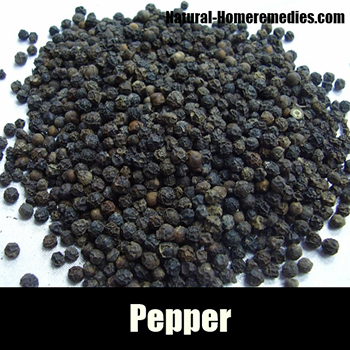 Peppermint oil is very potent and has numbing properties. The oil is capable of reducing sensitivity because of its strong, potent nature. Because of this property, peppermint oil can be used to get temporary relief from problematic toothache. Just put 3 to 4 drops of peppermint oil on the painful tooth with help of a dropper. It will cool and desensitize the area for a while and provide immediate relief. It is one of the widely used and best home remedies to get relief from toothache.
Peppermint oil is very potent and has numbing properties. The oil is capable of reducing sensitivity because of its strong, potent nature. Because of this property, peppermint oil can be used to get temporary relief from problematic toothache. Just put 3 to 4 drops of peppermint oil on the painful tooth with help of a dropper. It will cool and desensitize the area for a while and provide immediate relief. It is one of the widely used and best home remedies to get relief from toothache.
Alcohol-based mouthwash

Alcohol, again, is an excellent desensitizing agent. For this reason, it can be used to get temporary relief from toothaches. But, alcohol should not be used directly on the tooth as it can damage the gums and cause other harmful effects. There are several alcohol-based mouthwashes available in the market that can solve the purpose. Rinse your mouth thoroughly with an alcohol-based mouthwash. The exercise can provide significant relief from pain.
Diluted hydrogen peroxide

Hydrogen peroxide is an excellent cleaning agent. It has properties to kill bacteria and other harmful organisms. Rinsing mouth with 1:1 diluted hydrogen peroxide (with water) disinfects the mouth and provides a good and clean sensation. Not only it can provide relief from toothache, but also prevent recurrent toothaches. Regular rinsing with diluted hydrogen peroxide is recommended for good oral hygiene.
Clove powder and vanilla extract
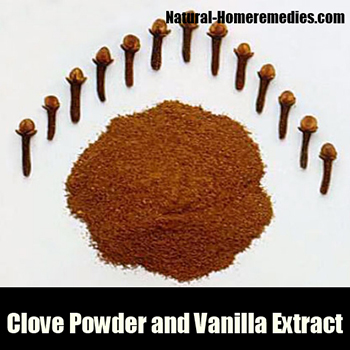 Both clove powder and vanilla extract have been found to have pain-reducing properties. The effectiveness of clove powder can be attributed to one of its constituent a compounds eugenol. Eugenol is a powerful anesthetic that also possesses antiseptic properties. When mixed with vanilla extract, their potency and effectiveness increases to a substantial degree. Therefore, combination of clove powder and vanilla extract can prove to be highly beneficial in relieving toothaches. Just mix clove powder and vanilla extract in equal amounts along with little water to form a paste. Apply directly on the painful tooth. Relive is immediate and long-term.
Both clove powder and vanilla extract have been found to have pain-reducing properties. The effectiveness of clove powder can be attributed to one of its constituent a compounds eugenol. Eugenol is a powerful anesthetic that also possesses antiseptic properties. When mixed with vanilla extract, their potency and effectiveness increases to a substantial degree. Therefore, combination of clove powder and vanilla extract can prove to be highly beneficial in relieving toothaches. Just mix clove powder and vanilla extract in equal amounts along with little water to form a paste. Apply directly on the painful tooth. Relive is immediate and long-term.
Guava tea leaves
 Guava tea leaves have analgesic properties and can be used very effectively in relieving toothaches. Prepare a concoction by boiling guava tea leaves in water for about 15 to 20 minutes. Rinse mouth with this water for about a minute or so. The exercise will result in significant immediate and long-term relief.
Guava tea leaves have analgesic properties and can be used very effectively in relieving toothaches. Prepare a concoction by boiling guava tea leaves in water for about 15 to 20 minutes. Rinse mouth with this water for about a minute or so. The exercise will result in significant immediate and long-term relief.
Garlic
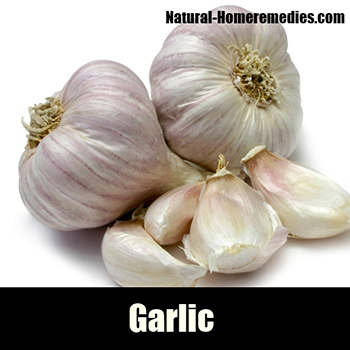 Garlic is amongst the most effective home remedies for toothache. It contains a powerful compound called allicin that has a powerful antibiotic effect. The compound is released upon crushing the garlic and can help slow down any bacterial activity. Just placed a clove of garlic with a pinch of rock salt on the affected tooth, and see the magic. The combination relieves the pain almost immediately, and sometimes may even cure it. Also, it is recommended to have a garlic clove on a daily basis to get improved oral health. It will cure the teeth and make them strong and healthy.
Garlic is amongst the most effective home remedies for toothache. It contains a powerful compound called allicin that has a powerful antibiotic effect. The compound is released upon crushing the garlic and can help slow down any bacterial activity. Just placed a clove of garlic with a pinch of rock salt on the affected tooth, and see the magic. The combination relieves the pain almost immediately, and sometimes may even cure it. Also, it is recommended to have a garlic clove on a daily basis to get improved oral health. It will cure the teeth and make them strong and healthy.
Onion
 Research has confirmed bactericidal properties of onion. A raw onion, if eaten on a daily basis by thorough mastication, can protect the user from variety of tooth disorders. Chewing raw onion for three minutes is sufficient to kill all the germs in the mouth. Toothache is often allayed by placing a small piece of onion on the bad tooth or gum. One can simply place a slice of onion over the painful tooth. Onions are quite rich in sodium, vitamins E, B12, and are low in fats. Simply including onions in daily diet and chewing few slices per day can help prevent and control toothaches.
Research has confirmed bactericidal properties of onion. A raw onion, if eaten on a daily basis by thorough mastication, can protect the user from variety of tooth disorders. Chewing raw onion for three minutes is sufficient to kill all the germs in the mouth. Toothache is often allayed by placing a small piece of onion on the bad tooth or gum. One can simply place a slice of onion over the painful tooth. Onions are quite rich in sodium, vitamins E, B12, and are low in fats. Simply including onions in daily diet and chewing few slices per day can help prevent and control toothaches.
Lime
 It is a rich source of vitamin C and is useful in maintaining health of teeth and other parts of the body. Sufficiency of vitamin C in the body can prevent decay and loosening of teeth, dental caries, toothache, and even bleeding of gums. Eating a raw lime with its peel can offer some much-needed toothache relief. Rich composition of vitamin C can probably explain the effectiveness of lime for toothaches.
It is a rich source of vitamin C and is useful in maintaining health of teeth and other parts of the body. Sufficiency of vitamin C in the body can prevent decay and loosening of teeth, dental caries, toothache, and even bleeding of gums. Eating a raw lime with its peel can offer some much-needed toothache relief. Rich composition of vitamin C can probably explain the effectiveness of lime for toothaches.
Wheatgrass
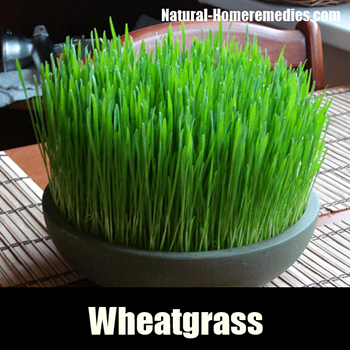 Wheatgrass juice can act as an excellent mouthwash as it can prevent tooth decay and toothaches. Wheatgrass is a natural antibiotic that can offer some protection against bacterial infections of the gums and teeth. Wheatgrass draws out toxins from the gums and thus checks bacterial growth, which, in turn, relieves toothache. Wheatgrass can be chewed with many other benefits in addition getting relief from toothaches.
Wheatgrass juice can act as an excellent mouthwash as it can prevent tooth decay and toothaches. Wheatgrass is a natural antibiotic that can offer some protection against bacterial infections of the gums and teeth. Wheatgrass draws out toxins from the gums and thus checks bacterial growth, which, in turn, relieves toothache. Wheatgrass can be chewed with many other benefits in addition getting relief from toothaches.
Asafoetida
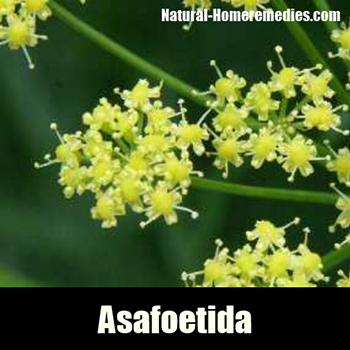 Asafoetida has been widely used in traditional medicine since ancient times, particularly in the Indian sub-continent. It has been found useful in curing toothache when pestled in lemon juice and slightly heated. A cotton swab should be soaked in this lotion and placed in the tooth cavity. It will relieve pain quickly. One can also fry some asafoetida lightly in clarified butter to prepare it as a solution. The herb possesses pain-reducing properties.
Asafoetida has been widely used in traditional medicine since ancient times, particularly in the Indian sub-continent. It has been found useful in curing toothache when pestled in lemon juice and slightly heated. A cotton swab should be soaked in this lotion and placed in the tooth cavity. It will relieve pain quickly. One can also fry some asafoetida lightly in clarified butter to prepare it as a solution. The herb possesses pain-reducing properties.
Bay berry
 Bay berry has been found to have antiseptic, antibiotic, and antipyretic properties. For this reason, it is also used to get relief from toothaches. A paste of the bark of bay berry can be made with vinegar and applied on the affected tooth to get relief from toothache. Not only bay berry helps in reduce toothaches, it is also beneficial in strengthening teeth and toning gums.
Bay berry has been found to have antiseptic, antibiotic, and antipyretic properties. For this reason, it is also used to get relief from toothaches. A paste of the bark of bay berry can be made with vinegar and applied on the affected tooth to get relief from toothache. Not only bay berry helps in reduce toothaches, it is also beneficial in strengthening teeth and toning gums.
Pepper
 Pepper when mixed with quarter teaspoon of common salt can do wonders for toothache. Make it a paste and apply on the painful tooth. Effect is immediate and long lasting. Daily use can prevent dental cavities, foul breath, gingivitis, painful gums, and toothaches. The mixture can also treat increased sensitivity of teeth.
Pepper when mixed with quarter teaspoon of common salt can do wonders for toothache. Make it a paste and apply on the painful tooth. Effect is immediate and long lasting. Daily use can prevent dental cavities, foul breath, gingivitis, painful gums, and toothaches. The mixture can also treat increased sensitivity of teeth.
Teabag
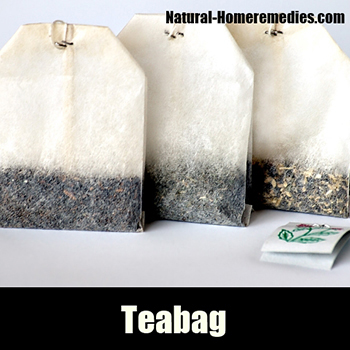 Tea has been found to have compounds that alleviate pain. One of the most common methods to get relief from toothache is to place a warm teabag on the painful tooth and bite it strongly to squeeze out the juice. Warmth provides relief and properties of tea alleviate pain.
Tea has been found to have compounds that alleviate pain. One of the most common methods to get relief from toothache is to place a warm teabag on the painful tooth and bite it strongly to squeeze out the juice. Warmth provides relief and properties of tea alleviate pain.
Fluoride Toothpaste

Fluoride can reduce toothaches to a greater degree. It is the reason that fluoride is one of the major components in toothpastes these days. The remedy is pretty easy and handy, as most of the people have a fluoride toothpaste in their house. Either apply some fluoride toothpaste on the painful tooth or brush gently with it. The exercise can alleviate the pain, completely.
Diet for Toothache
Diet plays a really vital role in the dental health of a person. Largely, condition of teeth after they are formed depends on the foods one eats during the course of life. If one keeps on sticking to sweet food and carbonated drinks, there are chances that one would develop problematic gums, teeth. Destruction of bone around the teeth, dental decay, and infection of the gums can be largely attributed towards the food one eats. If one cares about what one should eat, there are fair chances that any oral problems do not arise ever. Teeth are the strongest part of human body, but require proper care throughout lifetime. All the dental problems can be kept at bay with help of proper diet. Rather, one can make teeth and jaw bones stronger and harder with help of proper diet.
In any case, if one is suffering from any dental problem, one should avoid certain kinds of foods. Seeing from another angle, if one keeps control over certain foods in day to day life, any dental problems would not surface. However, there are certain foods that one should avoid and there are others that one should promote. Let us have a look at foods one should avoid and choose to have a better dental health.
Restrict Sugar Intake
It is important to restrict one's sugar intake, especially for people who suffer from dental issues. Generally, right from small age, children have high tendency towards eating sweet foods like chocolates, sweets, etc. However, their teeth are temporary, the problems can set in at early age. Once permanent teeth are out, one should start practicing control over sugary and sweet food. Sweet food promotes quick reproduction of bacteria in the oral cavity, which can result in infections. There are times when one can even end up losing a teeth because of these infections. To keep tooth decay down, try to minimize intake of foods that are heavy in sugar or are made of ingredients that can produce the fructose, glucose, and lactose. Teeth bacteria love to feed on these sugary items and multiply at a quicker rate. Therefore, it is advised to avoid and restrict sugar intake.
Include Raw Vegetables in Diet
 Whole foods are ideal for the teeth. To have healthy and disease-free teeth, make sure that your diet includes plenty of raw vegetables and wholewheat bread. Vegetables and wholewheat breads are high source of fiber and nutrition. These foods are sometimes even termed as detergent foods by dentists as they help remove plaque. On the other hand, fiber-less and refined foods allow particles to accumulate on the teeth in a sticky mass where they can do harm. Also recommended is to increase intake of fresh fruits and green leafy vegetables. These foods are rich sources of vitamins, minerals, and other important nutrients that help strengthen teeth and gums, making them less susceptible to decay and erosion. Calcium is one the most important mineral in this regard and can be obtained from all the dairy products.
Whole foods are ideal for the teeth. To have healthy and disease-free teeth, make sure that your diet includes plenty of raw vegetables and wholewheat bread. Vegetables and wholewheat breads are high source of fiber and nutrition. These foods are sometimes even termed as detergent foods by dentists as they help remove plaque. On the other hand, fiber-less and refined foods allow particles to accumulate on the teeth in a sticky mass where they can do harm. Also recommended is to increase intake of fresh fruits and green leafy vegetables. These foods are rich sources of vitamins, minerals, and other important nutrients that help strengthen teeth and gums, making them less susceptible to decay and erosion. Calcium is one the most important mineral in this regard and can be obtained from all the dairy products.
Avoid Frequent Small Snacks
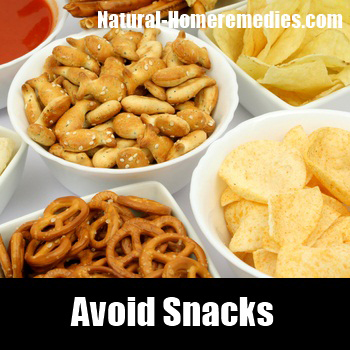 Frequent small snacks can prove to be very harmful to teeth as they can produce an acid medium in which the bacteria flourish and thrive. Rate of decay can considered directly proportional to the number of times one eats sugar or sugary food. Therefore, it is often recommended even by dentists to eat sweets at the end of meal rather than between the meals.
Frequent small snacks can prove to be very harmful to teeth as they can produce an acid medium in which the bacteria flourish and thrive. Rate of decay can considered directly proportional to the number of times one eats sugar or sugary food. Therefore, it is often recommended even by dentists to eat sweets at the end of meal rather than between the meals.
Anti-cavity Diet
To keep away any dental issues, one should eat a diet that is rich in calcium, vitamins, mineals, and fluoride. Fluoride is one element that is very important for good dental health. Sugars and starchy foods are gala feast for bacteria and are generally poor in vital nutrients. Moreover, these can lead to decaying of teeth, even if you are one of those most avid brushers and flossers. Some of the foods that promote dental health are listed below. These are the most common foods that have a pain relieving effect and act as natural toothache remedies.
Lime Juice
 It is a great source of vitamin C and can help prevent tooth decay and other oral disorders. Lime juice can also be helpful in alleviating toothache.
It is a great source of vitamin C and can help prevent tooth decay and other oral disorders. Lime juice can also be helpful in alleviating toothache.
Hot Pepper Powder
 Adding hot pepper powder in your food items on a regular basis can keep away the dental problems. Similarly, adding a pinch of hot pepper powder to the salt is also a good idea. Pepper powder can have a great numbing effect when rubbed on gums.
Adding hot pepper powder in your food items on a regular basis can keep away the dental problems. Similarly, adding a pinch of hot pepper powder to the salt is also a good idea. Pepper powder can have a great numbing effect when rubbed on gums.
Salt
 It doesn't get simpler than this. A regular salt water rinse, just twice a day, can keep all the dental issues at bay. Also, it can help get rid of tooth infection and cure toothache. Try to make it part of your daily routine for a disease-free oral health.
It doesn't get simpler than this. A regular salt water rinse, just twice a day, can keep all the dental issues at bay. Also, it can help get rid of tooth infection and cure toothache. Try to make it part of your daily routine for a disease-free oral health.
Onions
 Onion's antibacterial properties kill germs and keep the mouth disease-free.
Onion's antibacterial properties kill germs and keep the mouth disease-free.
Garlic
 Include garlic in regular food; it will help with oral health. Also, one can place a clove of garlic everyday in mouth, if tolerated. Garlic has antibacterial properties that kill the germs in the mouth.
Include garlic in regular food; it will help with oral health. Also, one can place a clove of garlic everyday in mouth, if tolerated. Garlic has antibacterial properties that kill the germs in the mouth.
Preventive Measures for Toothache
As they say, prevention is better than cure. So, it is better to include some routine activities in your daily routine that can prevent any future dental problems. Some of the preventive measures towards excellent oral health are as under:
Maintain Healthy Diet
Avoid sugary and sweet food whenever possible. Bacteria thrive on refined sugar and starch and need this in order to burrow through the enamel on your teeth. Be careful about food that sticks to and between your teeth. Include as much salad and roughage in your diet as possible.
Use Fluoridated Toothpaste and Water
Choose a toothpaste that has fluoride in it. Fluoride is effective in preventing tooth decay in children. Fluoride is a natural element and can be found in many toothpastes and water supplies and vegetables. If your water is not fluoridated, your dentist can prescribe fluoride tablets or fluoride supplements.
Keep Prosthetics Clean
Keep your bridges, dentures as clean as possible. Avoid chewing hard substances, fruits, and foods directly. Instead, cut and chew, cautiously.
Prevent Impact
While playing sports or any aggressive activity, wear a protective dental guard or headgear to prevent injury.
Brush Twice
It is one of the most important points to remember. Brushing twice a day thoroughly keeps most of the dental problems away. Dentists generally recommend to brush teeth after meals, i.e., once after dinner, and then after breakfast. It is the right method to do so.
Regular Checkup by Dentist
Most of the problems can be avoided if one goes for a regular dental checkup. Keep your dentist's phone number handy and go for checkup every 6 months.
Floss
Flossing is extremely effective in removing physical impurities stuck between teeth. Regular flossing can help prevent any dental infections or diseases.
Avoid Smoking, Alcohol, and Tobacco
Smoking and chewing tobacco has direct adverse effect on teeth. Therefore, to maintain good oral health, one should avoid chewing tobacco and smoking. Also, alcohol should be taken in limited amounts and in well-diluted state.
Other Treatment Methods for Toothache
Painkillers
Most of the times, toothache is so gruesome that one has to resort to quickest possible remedy. Where home remedies are helpful and effective, they can take some time to show their effect. Not all home remedies show similar effect on different people. However, same is with prescription medicines, but their effect is pretty quick. An aspirin, or any other painkiller, is definitely more effective and quicker in helping alleviate toothache. Painkillers are one of the most preferred and quickest methods to get rid of toothaches. The only reason people do not go with painkillers is the side effects associated with them. Long-term side effects of painkillers can be adverse on liver and kidneys. In any case, if any home remedy does not work in time and you have a painkiller handy, it is recommended to consume it than bearing the pain.
Medical Advice
If toothache gets to a level where it becomes unbearable, it is always better to consult a dentist. A dentist can give a clear picture of the reason behind pain and perform x-ray on the affected tooth to ascertain the exact cause of pain. Some types of pain deserve immediate attention from your dentist. You will never come to know whether you have pain due to a cavity, a loose filling, a cracked tooth, or damaged pulp unless told by your dentist. It is recommended that for a pain that sticks around for more than 30 minutes after eating hot or cold foods should be addressed to a professional.
Extraction
There are times when the damage has already been done and the process cannot be reversed. However, your dentist will make full effort to save your tooth, but there can be a time that you might need to get it extracted, not only to end the severe pain, but also to save adjoining teeth. Extraction is always recommended when nothing else can be done with the tooth. Often, very diseased tooth which can be problematic to other teeth is extracted. Most of the times, the decision is voluntary by the patient because the pain experienced in mostly unbearable. At this time, one decides to give away the tooth than to bear the pain. However, tooth extraction is always a painful procedure, it is done under the effect of anesthesia. Few days after extraction can cause pain and a "hollow" feeling, but the patient gets permanent relief, in most of the cases.
